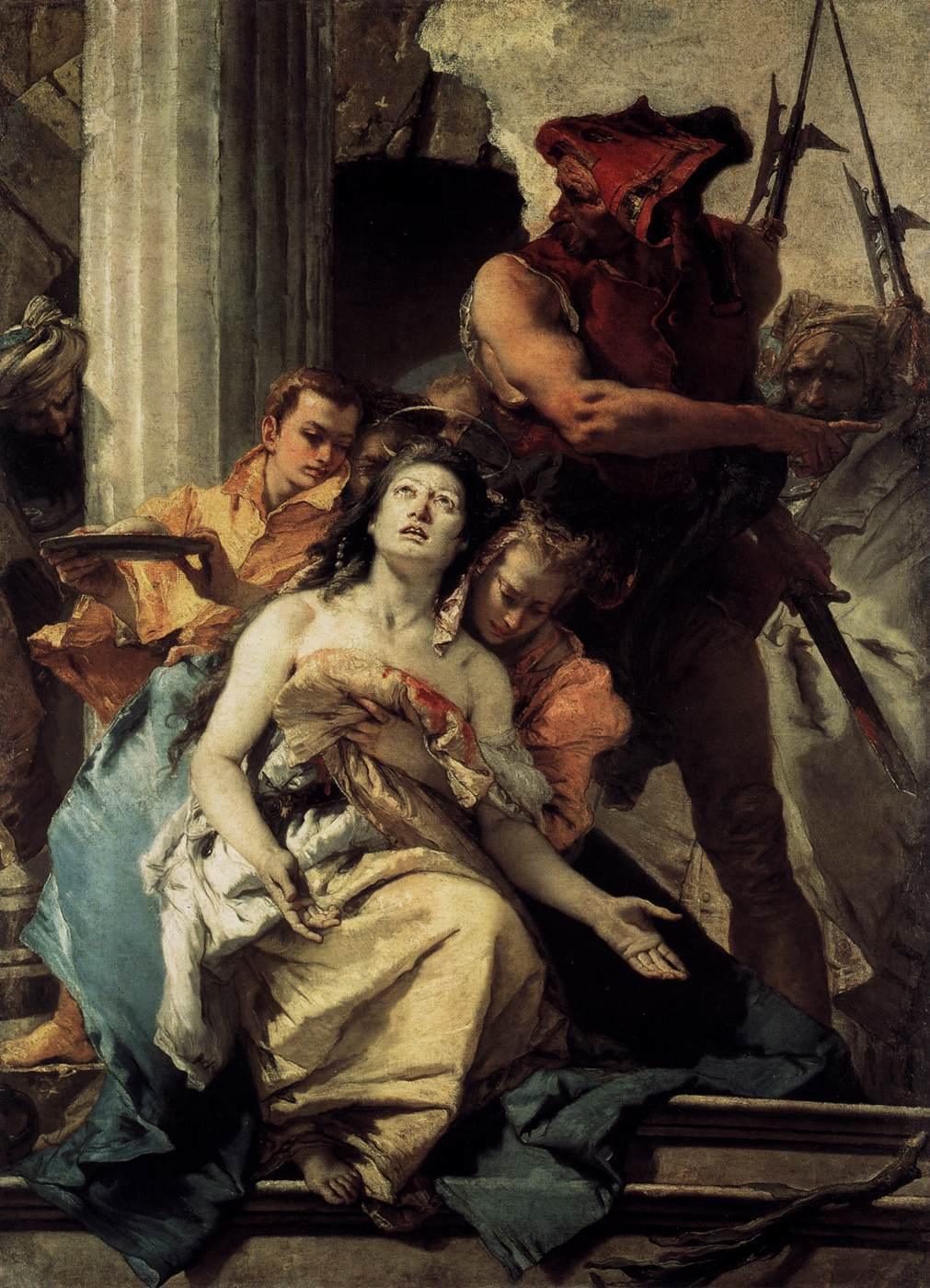Description
The painting "The Martyrdom of Saint Agatha" by Giovanni Battista Tiepolo is a masterpiece of Italian Baroque art of the 18th century. This work represents the moment when Santa Águeda, a Christian virgin and martyr, is tortured for her faith.
The composition of the painting is impressive, with a central figure of Saint Agatha at the center of the scene, surrounded by a group of men torturing her. The figure of Santa Águeda is depicted with great strength and determination, while the men that surround her are portrayed with great cruelty and violence.
Tiepolo's artistic style is evident in the painting, with his use of light and shadow to create a sense of depth and movement in the scene. The colors used in the painting are rich and vibrant, with shades of red and gold bringing out the intensity of the scene.
The story behind the painting is fascinating, as Saint Agatha is an important figure in the history of Christianity. She was martyred in the third century for refusing to renounce her faith and marry a pagan man. Tiepolo's painting is a powerful depiction of his sacrifice and dedication to his faith.
Also, there are little-known aspects of the painting that make it even more interesting. For example, it is believed that the figure of Saint Agatha was modeled by Tiepolo's wife, which gives the work a personal touch. It is also known that the painting was commissioned by a Venetian nobleman, demonstrating the importance attached to art at the time.

